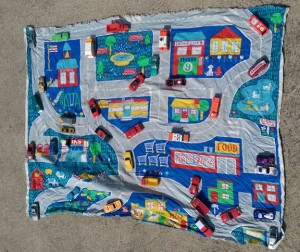To read all posts in this series from the beginning, click here.
Our houses get cluttered unless we regularly take inventory of the contents and purge things we no longer want or need, which is something I’ve been working on this year. In much the same way, bad habits and unhealthy thought patterns get out of control all too quickly if we neglect to tidy our minds. That is why the personal inventory taken in 12-step programs is not just an isolated event but is instead an ongoing process of continuous improvement.
Step Ten says: “Continued to take personal inventory and when we were wrong promptly admitted it.” Promptly acknowledging the need to correct a problem is always important because the longer things go without being corrected, the worse they get. That is true in many areas of life—when we get in the habit of fixing small things promptly, we find that routine maintenance is a lot easier than leaving stuff to pile up and turn into big, overwhelming problems.
Addictions, including chronic negativity, often are made worse by the stress that comes from letting unexamined stuff pile up like that. Even though we may not want to face up to whatever we’re doing wrong, we probably have at least some subconscious awareness that things aren’t going as they should. That not-quite-right feeling triggers anxiety, which in turn leaves us tempted to indulge in self-comforting addictive behaviors. Then we feel guilty, which causes more anxiety, and down we spiral.
In our complicated society, where it’s very easy to overlook things because we always have so much demanding our attention, it’s an unavoidable fact that we are going to be wrong sometimes, no matter what we do. And as a result, we need to admit when we’re wrong. That simple necessity shouldn’t leave us feeling ashamed or intimidated. Sometimes it does anyway, because we all have bad memories of having been bullied—or at least criticized harshly—when we were wrong. Admitting a mistake can feel like it leaves us more vulnerable to abuse from judgmental people.
But in my experience, calmly owning up to a mistake and taking action to correct it usually has been uneventful—not nearly as scary as procrastinating about it while imaginary negative scenarios multiply in my thoughts! When we become confident enough to own our actions, including the mistakes, we project authenticity and strength to others, and they are more likely to respond positively to us.
Taking personal inventory regularly, followed by prompt action, can be looked upon as just another one of life’s many necessary tasks, like washing the dishes or mowing the lawn. The dishes will need washing again, the lawn will need mowing again, and we surely will make mistakes that need correcting again. That’s just the way things go.


